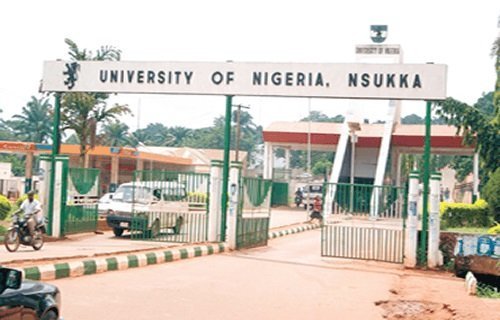IT is laudable that the University of Nigeria, Nsukka (UNN) has developed a 100kva Refuse Derived Fuel (RDF) gasification plant for the generation of electricity for the institution. The breakthrough, according to the institution’s Vice Chancellor, Prof. Benjamin Ozumba, is part of efforts to make the university the hub of innovation in sub-Saharan Africa. The feat is said to be the first of its kind in the country.
The plant was fabricated by the Department of Electrical Engineering of the university under the leadership of Prof. Emenike Ejiogu. The plant will enable UNN to generate its electricity with organic waste that will serve as fuel. According to the VC, the 100 kva RDF project is designed and fabricated by laboratory and industrial power devices and energy system under special grant. We commend the UNN for the great feat and urge other universities in the country to follow its worthy example and come up with more scientific discoveries. The UNN feat is, in deed, an answer to the nation’s lingering power problem. In fact, there is need for more
research in this area. Universities the world over are designed to find solutions to the problems that confront the society through innovative research. What the UNN has done can be replicated in many parts of the country. The plant can be used by individuals and corporate organisations. The Federal Government can use it to tackle some of the power challenges in the country. We urge the UNN to produce more of the plants that will use organic waste to generate electricity.
The Federal Government should encourage our universities in the area of innovative research so that they can find solutions to our problems. For the varsities to achieve great feats in research, the enabling environment must be provided. The government must be ready to fund research in our varsities. In a country where organic waste is becoming a huge challenge, it is good that the UNN has converted it into a source of energy. We urge the authorities of the UNN to ensure that the innovation is commercialised. Its commercialisation will mean more power generation and supply to the country. It can also earn the country additional revenue if fully developed. With this innovation, it will be easy to provide more urban areas with electricity through organic waste. The technology can be commercialised and exported to other countries where power supply is still a challenge. We urge interested companies to work in concert with the UNN team and ensure that the feat is commercialised. Let relevant stakeholders come to the support of the UNN team to ensure that the innovation is further improved and replicated. The Ministry of Power, Works and Housing should partner with the UNN to commercialise the discovery. It will go a long way to solve the nation’s power problem and also hasten our industrial and technological development. For years, inadequate power supply has been a huge problem for our country. Unfortunately, successive administrations from 1999 have been unable to solve the nation’s power problem despite billions of naira injected into the sector. It is also public knowledge that if the nation’s power problem is solved, the journey to our industrial development will be highly accelerated. With adequate electricity supply in the country, many manufacturing companies will be fully operational and they will not find reasons to relocate to other countries. This is why the government and other relevant stakeholders must ensure the development of the UNN feat.
Efforts should be made to maximise the potentials of the UNN break- through. Everything should be done to encourage our universities and other higher institutions to engage in more worthwhile researches.

